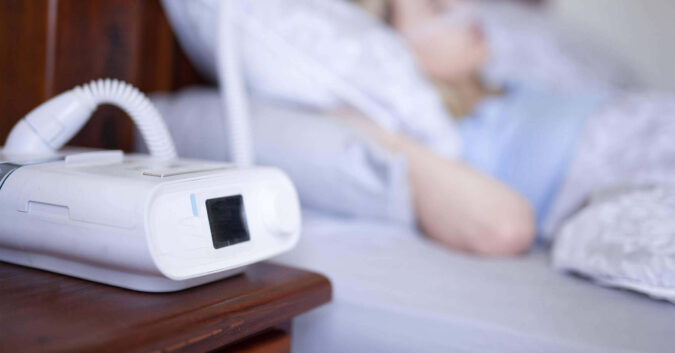The U.S. Food and Drug Administration (FDA) recently ordered Philips Respironics to notify all device users, suppliers, distributors, retailers, and health care providers who prescribe Philips products about the company’s recall of certain respiratory care devices.
While the recall was announced in June 2021, many consumers remain unaware.
The FDA’s order comes four months after a November federal safety inspection of the Philips manufacturing plant where the devices were made.
Included in the recall are:
- Continuous positive airway pressure (CPAP) machines
- Bilevel positive airway pressure (BiPAP) machines
- Mechanical ventilators
Among the 3-4 million products recalled, roughly 80% are CPAP machines, particularly those in the first-generation of DreamStation machines (see a full list of recalled products here).
Why Were Philips Respironics Devices Recalled?
Certain Philips Respironics breathing-assistance devices were recalled due to a defect in the sound-reducing polyester-based polyurethane (PE-PUR) foam, which can degrade over time, presenting life-threatening health hazards to users.
Specifically, the PE-PUR foam can break down into black particles that can enter the device’s air path and be swallowed by the user. These particles contain chemicals that may be carcinogenic if inhaled.
Users of Philips Respironics ventilators, BiPAP, and CPAP machines have experienced the following health complications:
- Failure of the kidneys, liver, or lungs
- Kidney (renal), liver, or lung cancer
- Organ damage
If you or a loved one has used a Philips Respironics sleep device and suffered from a health issue noted above, you may be able to pursue compensation through a Philips CPAP lawsuit.
What to Know About the FDA’s Order
The FDA issued its order after the agency learned that both patients who use the device and suppliers of the device reported that they were either unaware of the recall or have received insufficient information on what steps to take regarding the recall process.
According to the FDA, the agency has made several attempts to alert Philips about the insufficiency of the company’s current communications with the public about the recall.
During the last few months, the FDA has grown increasingly concerned that “a significant portion of patients and consumers using the recalled products are unaware of the health risks” associated with Philips ventilators, BiPAP, and CPAP devices.
About the FDA’s order, Jeff Shuren, M.D., J.D., director of the FDA’s Center for Devices and Radiological Health, said in a statement:
“Taking this action today enables the FDA to mandate that Philips Respironics improve its communication about the recall and the serious risk posed by the foam used in the recalled products with patients and the public and to ensure that individuals who rely on these essential devices are receiving the important information they need from the company.”
The FDA is also requiring the company to provide better website instructions for how users can register their devices to see if they are included in the recall.
In addition to its orders, the FDA is recommending Philips give detailed instructions to anyone impacted by the recall about the replacement process and to offer monthly updates to device users regarding when their devices may be replaced.
What to Do If You Suffered Health Issues
If you own a respiratory care device manufactured by Philips Respironics, first check to see if your device was included in the company’s recall. You can do this by visiting the Philips Respironics recall website and entering your product’s serial number to see if it has been recalled.
If your device is included in the recall, you may be eligible to receive a replacement device once Philips Respironics makes them available.
Additionally, if you developed a health issue as a result of using a Philips device, you may be able to pursue compensation through a lawsuit.
You may be eligible to file a Philips Respironics CPAP lawsuit if you or a loved one:
- Used a Philips Respironics ventilator, BiPAP, or CPAP machine
- Experienced organ damage or lung, liver, or kidney cancer as a result of using the device
The best way to learn if you may have a case is to contact Sokolove Law for a free, no-obligation case review to see if we can help.
